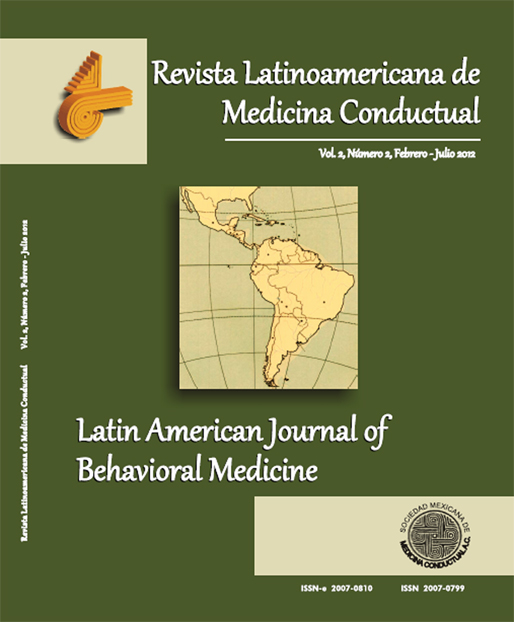An Acute, One-Session Behavioral Intervention for Hypertensive Diseases of Pregnancy: A Pilot Study
Main Article Content
Abstract
Psychological stress and poor coping strategies constitute some of numerous variables associated to thedevelopment of hypertensive diseases during pregnancy (HDP). In addition to leading to psychological suffering HDPs increase risks of pre-term births and placenta-related complications. Several studies have documented cognitive-behavioral techniques as effective in treating hypertension. Procedures such as basic or biofeedback assisted deep muscle relaxation, induced peripheral vase-dilation, autogenic training, cognitive restructuring, problem solving therapy and improved stress coping strategies have proven effective in treating resistant reactive essential hypertension. Objetive. The purpose of the present study was to explore the effectiveness of a psycho education-based cognitive behavioral intervention involving emotional self-regulation techniques on HDP patients. Participants. Five patients were intervened a few hours before delivery. Results. Participants achieved quantifiable improvement in such areas as: stress coping, anxiety and depressive symptoms and other psycho-social variables. Conclusion. Results point in the direction of positive changes, especially in the context of added components for further approaches.
Article Details
How to Cite
Castro, C. G., Mijangos R., M. G., Sánchez-Sosa, J. J., Matamoros-Tapia, J. L., & Nava-Guerrero, E. N. (2015). An Acute, One-Session Behavioral Intervention for Hypertensive Diseases of Pregnancy: A Pilot Study. Revista Latinoamericana De Medicina Conductual / Latin American Journal of Behavioral Medicine, 2(2). Retrieved from https://journals.unam.mx/index.php/rlmc/article/view/46840
Citas en Dimensions Service

Este obra cuyo autor es Universidad Nacional Autónoma de México está bajo una licencia de Reconocimiento-NoComercial-SinObraDerivada 4.0 Internacional de Creative Commons.
Creado a partir de la obra en http://www.revistas.unam.mx/index.php/rlmc.
